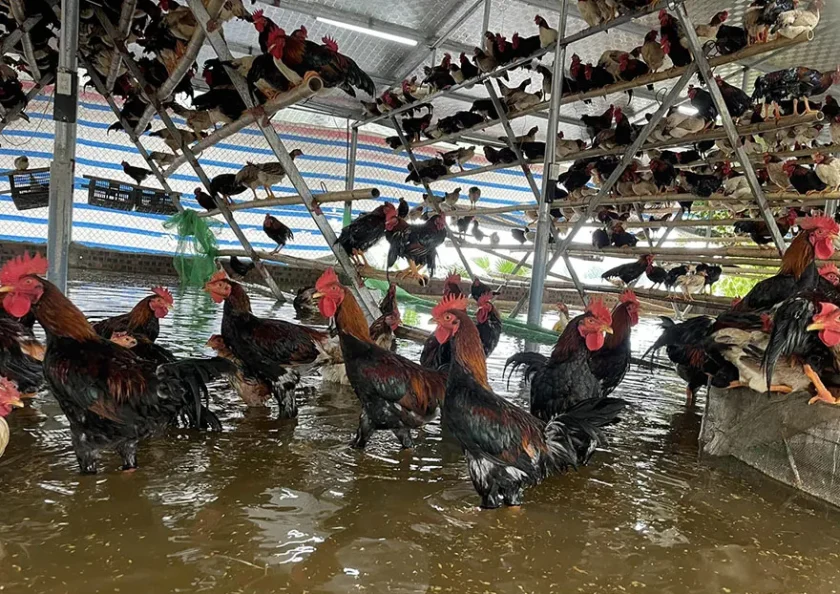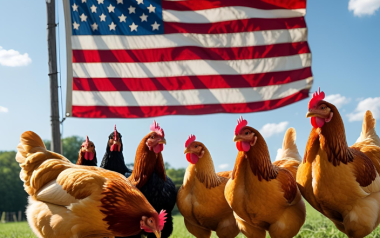
26 Jun 2025
Vietnam govt advises flood-affected residents not to consume dead livestock or poultry
The Ministry of Health has issued a strong warning urging people not to consume or process dead livestock or poultry for food.
Available in other languages:
Content available at:
Tiếng Việt (Vietnamese)
In response to increasingly severe flooding, Vietnam’s Ministry of Health has issued a strong warning urging people not to consume or process dead livestock or poultry for food. These animals pose a high risk of spreading disease, especially in damp and polluted conditions following floods.
According to the Ministry, heavy and prolonged rainfall creates ideal conditions for bacteria, viruses, and disease-carrying agents to thrive and infect humans. Common diseases during and after floods include acute diarrhea, respiratory infections, conjunctivitis (pink eye), skin diseases, and dengue fever.
Since May this year, many regions have experienced severe rain, localized flooding, and landslides. Weather forecasts indicate that more storms and heavy rainfall are expected, raising the risk of widespread disease outbreaks.

According to the Ministry of Health, heavy and prolonged flooding creates favorable conditions for bacteria, viruses, and disease vectors to thrive. Photo: Kinh te Đo thi.
Disease prevention measures for residents during and after flooding
To proactively prevent disease during and after floods, the Ministry recommends the following measures:
Continue after advertising.
- Only consume thoroughly cooked food and boiled water, do not eat or process dead or unidentified livestock or poultry.
- Ensure safe supplies of food and drinking water, especially in isolated or heavily flooded areas. Priority should be given to ready-to-eat packaged foods such as dried rations, instant noodles, and bottled water.
- Wash hands frequently with soap and clean water, especially before meals, after using the toilet, or after contact with contaminated water.
- Maintain daily personal hygiene; clean and dry your feet thoroughly after walking through floodwater. Dispose of animal carcasses according to health authorities’ instructions.
- Disinfect water sources such as shallow wells, boreholes, and water tanks that have been flooded by filtering, cleaning, and treating with chemicals as guided by health workers.
- Take active measures to prevent mosquito breeding, such as using bed nets (even during the day), wearing long-sleeved clothing, covering all water containers, eliminating stagnant water from objects like bottles and old tires, and spraying insecticides in high-risk areas.
- Do not wash your face or bathe with dirty water. Prevent children from bathing or playing in contaminated water to avoid diseases such as pink eye.
Raising public awareness about disease prevention during and after floods is essential to protect individual and community health. People are encouraged to actively cooperate with local authorities and health personnel to ensure hygiene and effective disease control.









































